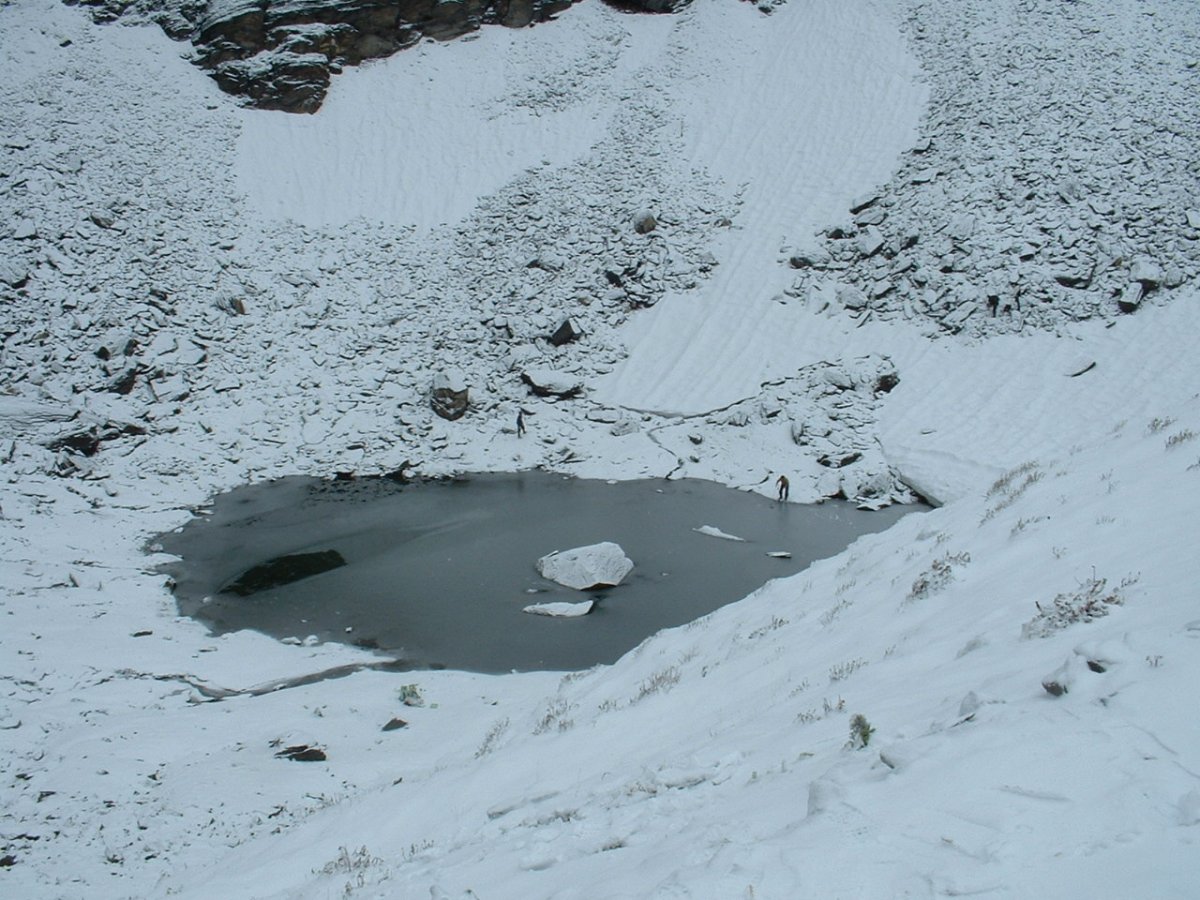There is a lake in India where the skeletons of hundreds of long lost people are scattered around the shores. The bones are only visible once a year, when the snow melts. How they got there and who they were is a mystery.
This is Roopkund Lake—also known as Skeleton Lake—a 30-foot wide body of water that sits 16,500 feet above sea level. It was first discovered in 1942 and since then the site has been extensively altered—the remains have been rearranged and artefacts removed. This makes studying the site, and understanding what happened there and why, very difficult.
Previously, it was generally thought the people who died at the site had done so during a single, catastrophic event, such as a massive storm, a landslide, a battle or an epidemic. At one point it was also suggested they could be victims of a ritual mass suicide.
In a study published in Nature Communications, an international team of researchers has now analyzed the remains of 38 individuals found at the site. They took DNA from the bones and sequenced them in order to find out when they lived and where they came from.

Researchers discovered that not only did the bodies come from three distinct groups, they also died there at different times. The earliest skeleton tested dated to around 800 A.D., while the latest was 1,000 years later, in 1800 A.D.
Two of the groups were found to be fairly local, with individuals having South Asian ancestry. However, the bodies were deposited there during different time periods.
The third group came as a surprise to the team. They found a group of individuals had come from the eastern Mediterranean, most closely relating to people from present-day Crete and Greece. These individuals died there around 1800 A.D.
"Roopkund Lake has long been subject to speculation about who these individuals were, what brought them to Roopkund Lake, and how they died," senior author Niraj Rai, of the Birbal Sahni Institute of Palaeosciences in India, said in a statement.

The discovery discounts the idea that Skeleton Lake was the scene of a single catastrophic event. Instead, people repeatedly returned to—and died—at the site. But why?
For the individuals with Indian ancestry, the team suggests the lake is on a present-day pilgrimage route that takes place every 12 years. Potentially, they say, this route may date back far further than previously thought. "We view the hypothesis of a mass death during a pilgrimage event as a plausible explanation for at least some of the individuals," they wrote.
The Mediterranean group is far more perplexing: "What we have sampled is a group of unrelated men and women who were born in the eastern Mediterranean during the period of Ottoman political control. As suggested by their consumption of a predominantly terrestrial, rather than marine-based diet, they may have lived in an inland location, eventually traveling to and dying in the Himalayas. Whether they were participating in a pilgrimage, or were drawn to Roopkund Lake for other reasons, is a mystery," the team concludes.
"It is still not clear what brought these individuals to Roopkund Lake or how they died," Rai said. "We hope that this study represents the first of many analyses of this mysterious site."
Uncommon Knowledge
Newsweek is committed to challenging conventional wisdom and finding connections in the search for common ground.
Newsweek is committed to challenging conventional wisdom and finding connections in the search for common ground.
About the writer
Hannah Osborne is Nesweek's Science Editor, based in London, UK. Hannah joined Newsweek in 2017 from IBTimes UK. She is ... Read more





